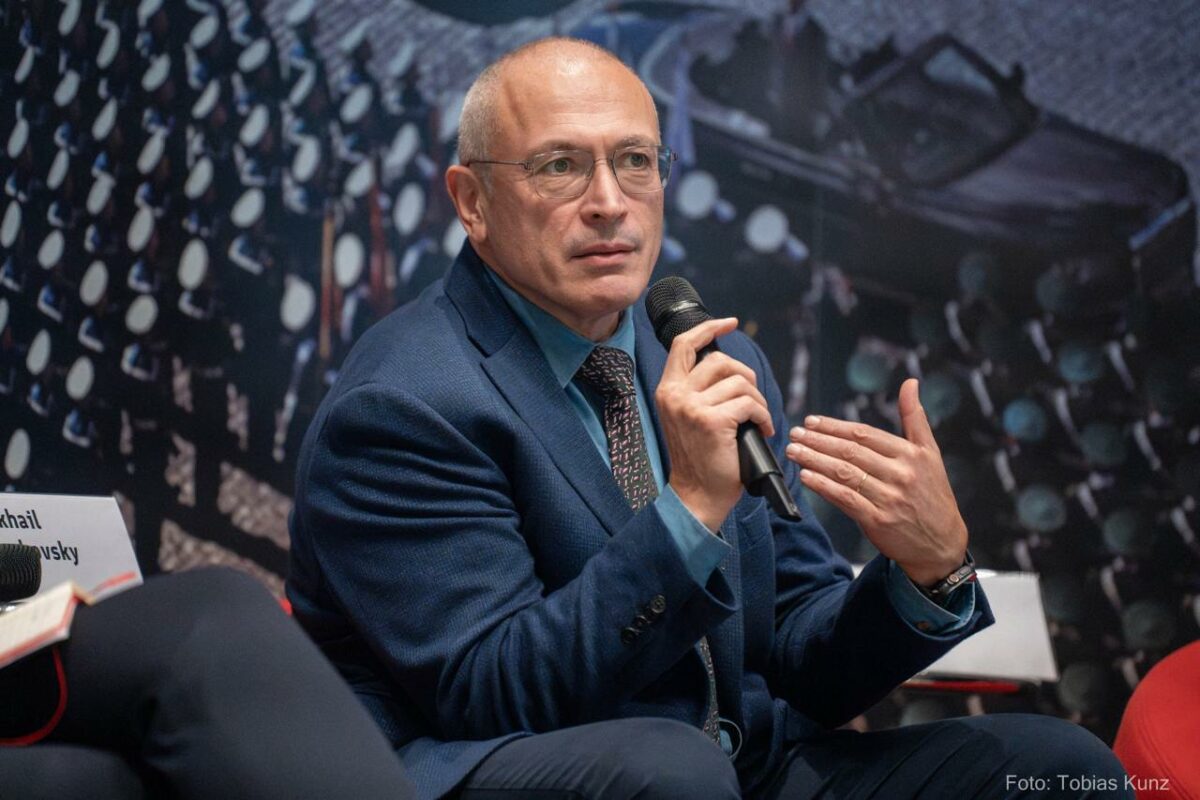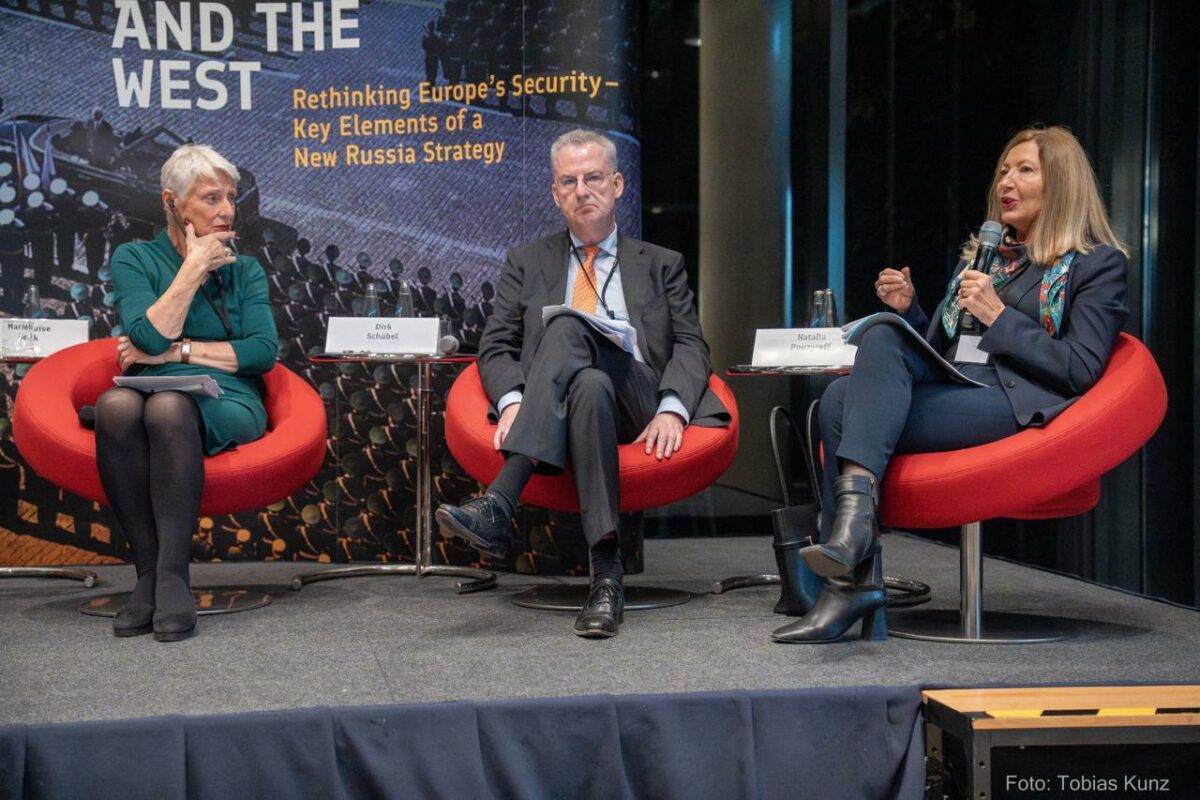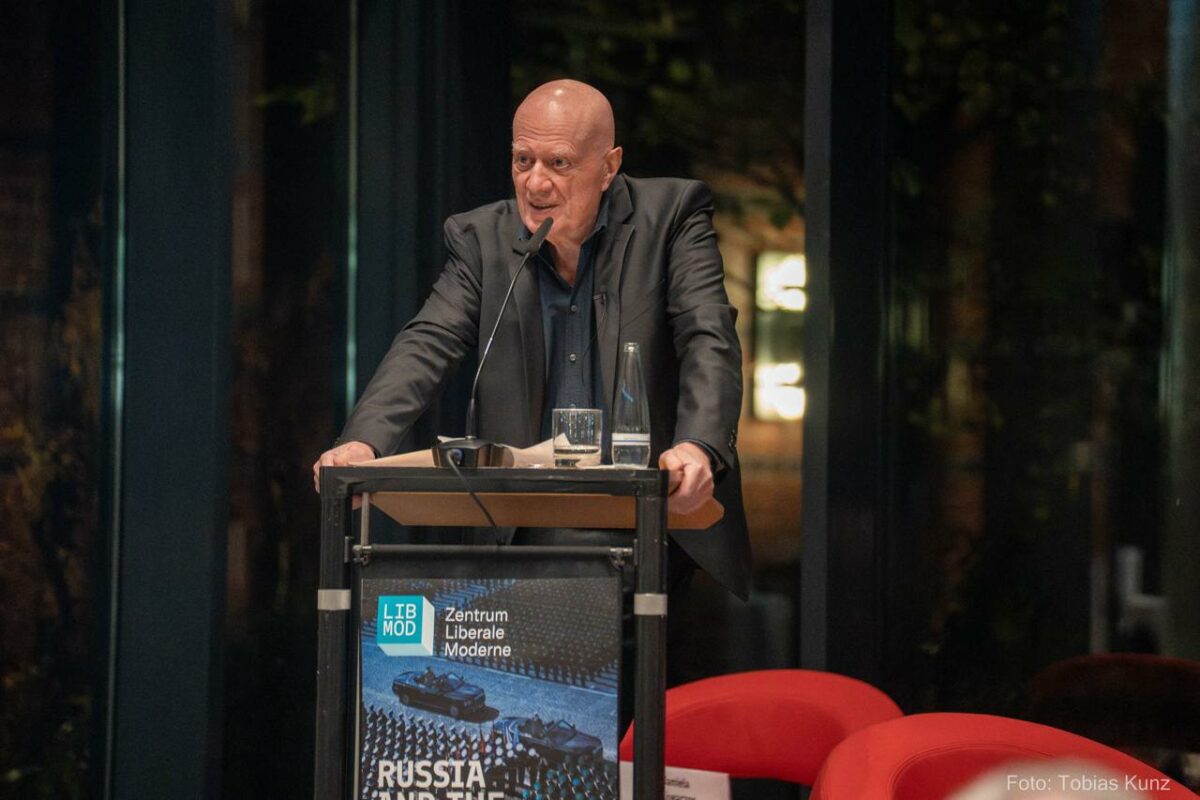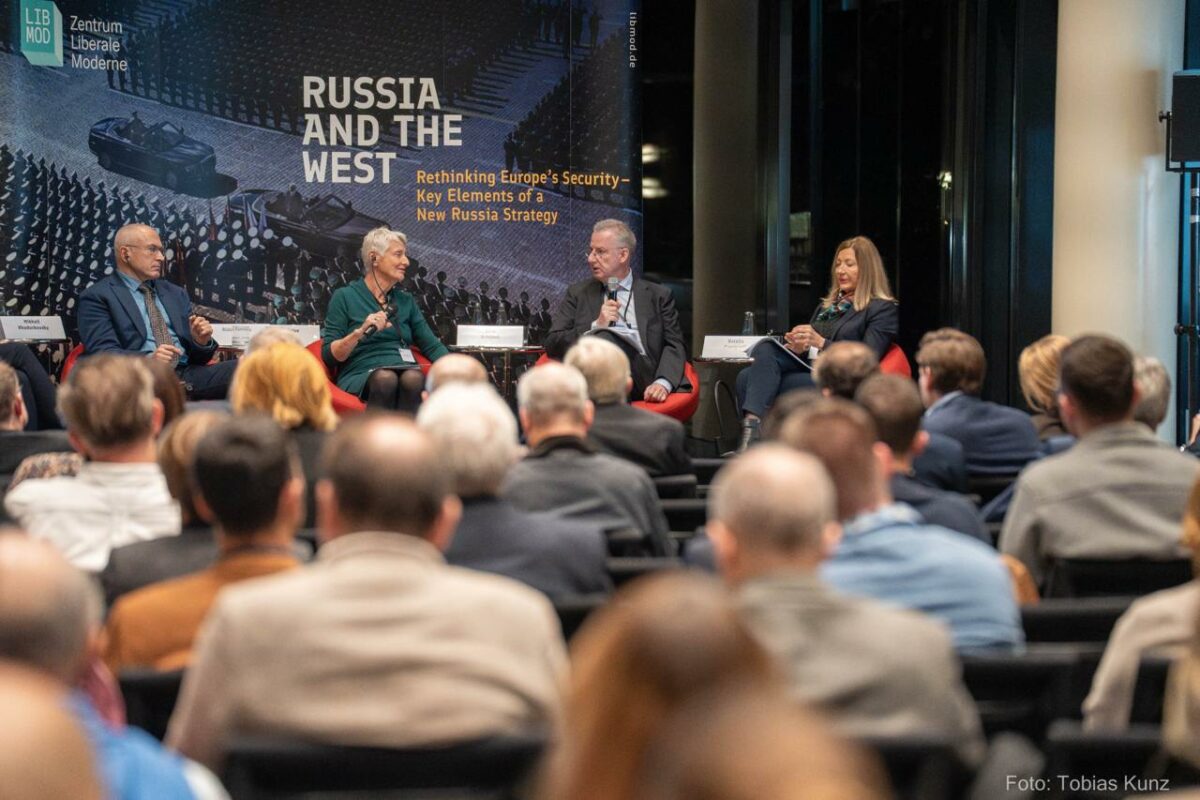The Center for Liberal Modernity held the panel discussion “Russia and the West” in Berlin on Thursday, October 16, 2025.
Rethinking European security – Key points of a new Russia strategy




Russia’s war of aggression against Ukraine has shaken the post-war order in Europe to its foundations. More than three years after the major Russian invasion, significant differences are emerging within the EU and NATO – particularly regarding an end to the war and how to deal with Russia. The new Trump administration sees Europe as a business partner at best. We can no longer hide behind the US as the guarantor of the European peace order. Russia will remain a threat to democratic Europe for the foreseeable future – especially if it achieves its war aims in Ukraine.
The drastic change in the geostrategic environment presents Europe with enormous challenges. First, it is essential to support Ukraine more quickly and much more strongly than before so that it can withstand Russia’s war of aggression. At the same time, Europe must massively strengthen its defense capabilities and security cooperation. Finally, in the face of Russian neo-imperialism, we must develop a long-term European security strategy that is viable even without US military involvement. The political and military integration of Ukraine must be a core element of this strategy, which protects Europe from a belligerent Russia and promotes political change in Russia rather than fearing it.
At the panel discussion “Russia and the West,” responses to these challenges were discussed, giving insightful contributions on how Europe must rethink its security in the face of Russia’s ongoing aggression.
Programme
Welcome: Ralf Fücks , Center for Liberal Modernity
Rethinking European security – Key points of a new Russia strategy
- Mikhail Khodorkovsky
- Natalia Pouzyreff , Member of the National Assembly, Secretary of the Committee on National Defence and the Armed Forces
- Alda Vanaga , Ambassador of the Republic of Latvia
- Marcin Zaborowski , Distinguished Fellow, Future of Security Program , GLOBSEC (online)
Comment: Dirk Schübel , Head of Department for Russia in the European External Action Service
Moderation: Marieluise Beck , Center for Liberal Modernity
The key takeaway was clear: Europe must assume greater strategic responsibility — by substantially strengthening support for Ukraine and building defence capacities that do not rely solely on the United States. Ukraine’s political and military integration into Europe is not just a moral obligation — it is a security imperative.
Mikhail Khodorkovsky also emphasised: “The contact with Russian society—although deeply flawed—is something Europe must deal with. Because at some point, Putin will no longer be around.”



